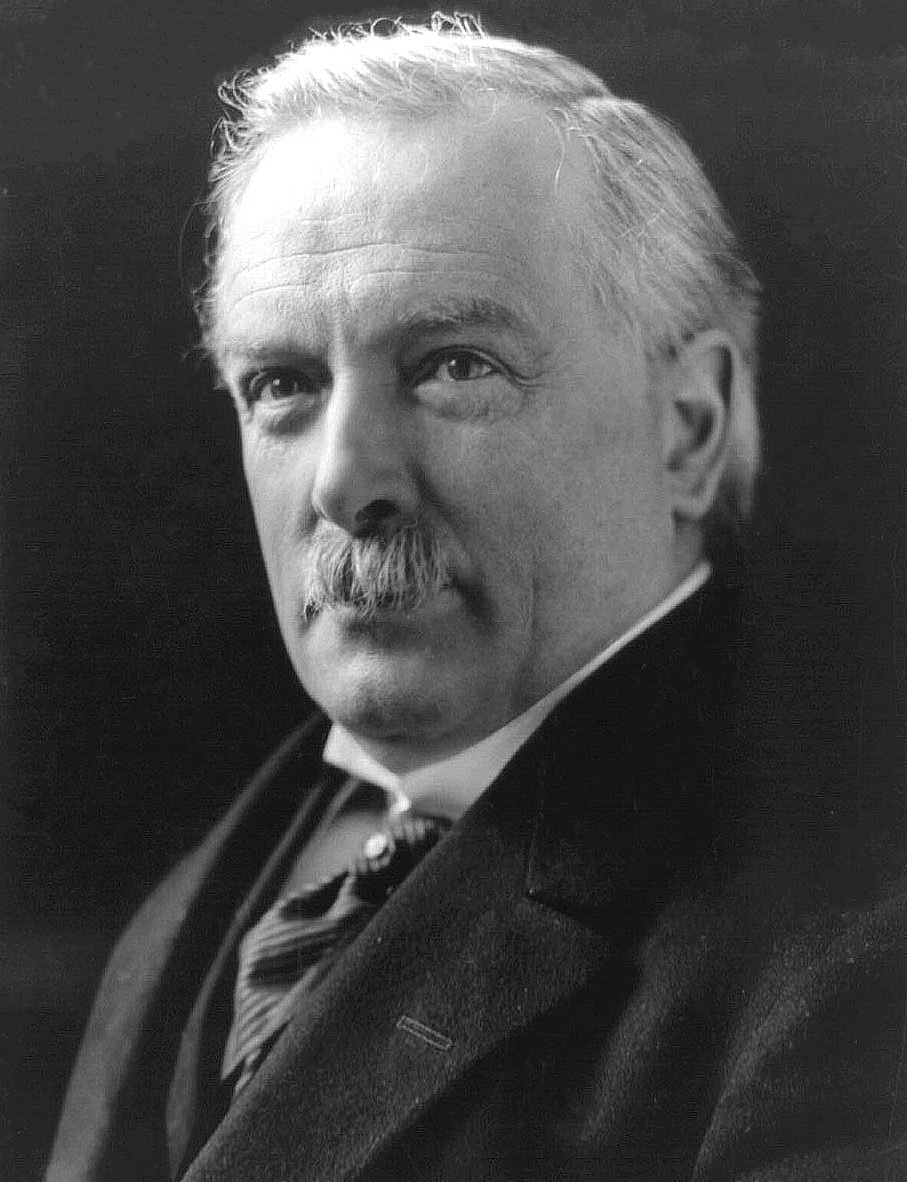Fontainebleau-Memorandum zum Versailler Vertrag, 25. März 1919. Geschichte und Geschehen 2, Verlag Ernst Klett, 2. Auflage, S.445
"You may strip Germany of her colonies, reduce her armaments to a mere police force and her navy to that of a fifth rate power; all the same in the end if she feels that she has been unjustly treated in the peace of 1919 she will find means of exacting retribution from her conquerors." - The "Fontainebleau Memorandum" of Mr. Lloyd George (dated March 25, 1919), tmh.floonet.net http://tmh.floonet.net/articles/fontainebleaumemo.html
Zitate mit Quellenangabe
David Lloyd George Berühmte Zitate
„Ich weiss, was man zum Kriegführen braucht! Glauben Sie mir, Deutschland ist nicht dazu imstande“
1934, zum zwanzigsten Jahrestag des Kriegsausbruchs 1914. Zitiert bei Leopold Schwarzschild: Das Neue Tage-Buch, 1934 S. 749. http://books.google.de/books?id=4EwHAQAAIAAJ&q=%22dazu+imstande%22
"Believe me, Germany is unable to wage war." - Zitiert bei Leopold Schwarzschild: World in Trance. London Hamish Hamilton 1942. p. 238. http://books.google.de/books?id=3jugAAAAMAAJ&q=%22is+unable%22
Zitate mit Quellenangabe
Nach seinem Besuch in Berchtesgaden bei Adolf Hitler am 4. September 1936. Zitiert bei Hellmut Diwald: Deutschland einig Vaterland - Geschichte unserer Gegenwart. Books on Demand 2006. S. 45. Google Books
David Lloyd George: Zitate auf Englisch
Speech in the House of Commons http://hansard.millbanksystems.com/commons/1914/jul/23/finance-bill on the day the Austrian ultimatum was sent to Serbia (23 July 1914); The "neighbour" mentioned is Germany.
Chancellor of the Exchequer
Telegram to a national conference to promote the taxation and rating of land held in Cardiff (13 October 1913), quoted in The Times (14 October 1913), p. 10
Chancellor of the Exchequer
Speech of 1914; quoted in The Brunswick and Coburg Leader (16 October 1914). The "empire" mentioned is Austria-Hungary.
Chancellor of the Exchequer
Speech in Llandudno (19 January 1939), quoted in The Times (20 January 1939), p. 14
Later life
Speech in Bangor (17 January 1935), quoted in The Times (18 January 1935), p. 7
Later life
Speech in Barmouth (22 September 1933), quoted in The Times (23 September 1933), p. 7
Later life
Election address (25 October 1931), quoted in The Times (26 October 1931), p. 14
Later life
Speech in Cambridge (1 May 1926) on the General Strike, quoted in The Times (3 May 1926), p. 9
Later life
Speech https://api.parliament.uk/historic-hansard/commons/1925/jul/29/navy-supplementary-estimate-1925-26#column_479 in the House of Commons (29 July 1925)
Later life
Speech in Camberwell, London (27 October 1924) attacking Ramsay MacDonald's Labour Government, quoted in The Times (28 October 1924), p. 8
Later life
Later life
Quelle: Speech in Queen's Hall, Langham Place (14 October 1924) opening the Liberal Party's election campaign, quoted in The Times (15 October 1924), p. 10
Speech in Haverfordwest (10 November 1922) during the general election campaign, quoted in The Times (11 November 1922), p. 12
Later life
Speech in Manchester (14 October 1922) referring to the Chanak Crisis, quoted in The Times (16 October 1922), p. 17
Prime Minister
Election programme contained in a foreword to an official list of Coalition candidates, quoted in The Times (11 December 1918), p. 8
Prime Minister
Speech in Newcastle-upon-Tyne (29 November 1918), quoted in The Times (30 November 1918), p. 6
Prime Minister
Letter to Andrew Bonar Law (2 November 1918), quoted in The Times (18 November 1918), p. 4
Prime Minister
Speech in Manchester (12 September 1918), quoted in The Times (13 September 1918), p. 8
Prime Minister
Speech in Manchester (12 September 1918), quoted in The Times (13 September 1918), p. 8
Prime Minister
Speech https://api.parliament.uk/historic-hansard/commons/1919/aug/18/dumping in the House of Commons (18 August 1919)
Prime Minister
Speech to the Trades Union Congress in Bristol (9 September 1915), quoted in The Times (10 September 1915), p. 10
Minister of Munitions
Speech in Manchester (3 June 1915), quoted in The Times (4 June 1915), p. 9
Minister of Munitions
Speech in the House of Commons (9 March 1915) on the Defence of the Realm (Amendment) Bill, quoted in The Times (10 March 1915), p. 14
Chancellor of the Exchequer
“There is no greater mistake than to try to leap an abyss in two jumps.”
[Lloyd George, David, David Lloyd George, War Memoirs, New, 1, 1938, Odhams Press Limited, London, 445, XXIV: Disintegration of the Liberal Party]
War Memoirs
“The Government can lose the war without you; they cannot win it without you.”
Speech to the Trades Union Congress in Bristol (9 September 1915), quoted in The Times (10 September 1915), p. 9
Minister of Munitions
“I am fighting hard for peace.”
Remarks to George Riddell, as recorded in Riddell's diary (31 July 1914), quoted in J. M. McEwen (ed.), The Riddell Diaries 1908-1923 (1986), p. 85
Chancellor of the Exchequer
“No one can doubt that Lenin was one of the greatest leaders of men ever thrown up in any epoch.”
War Memoirs: Volume II (1938), p. 1887
War Memoirs
Letter to Frances Stevenson (22 January 1929), quoted in My Darling Pussy: The Letters of Lloyd George and Frances Stevenson, 1913–41, ed. A. J. P. Taylor (1975), p. 114
Leader of the Liberal Party
Leader of the Liberal Party in the House of Commons
Quelle: Speech to the Welsh National Liberal Federation in Rhyl (9 July 1926), quoted in The Times (10 July 1926), p. 16
Remarks to George Riddell as recorded in his diary (8 October 1921), quoted in Lord Riddell's Intimate Diary of the Peace Conference and After, 1918–1923 (1933), p. 328
Prime Minister
“Capital has been made for man, and not man for Capital.”
Speech to the Lancashire and Cheshire Federation of the League of Young Liberals in the Free Trade Hall, Manchester (28 April 1923), quoted in The Times (30 April 1923), p. 17
Leader of the National Liberal Party
